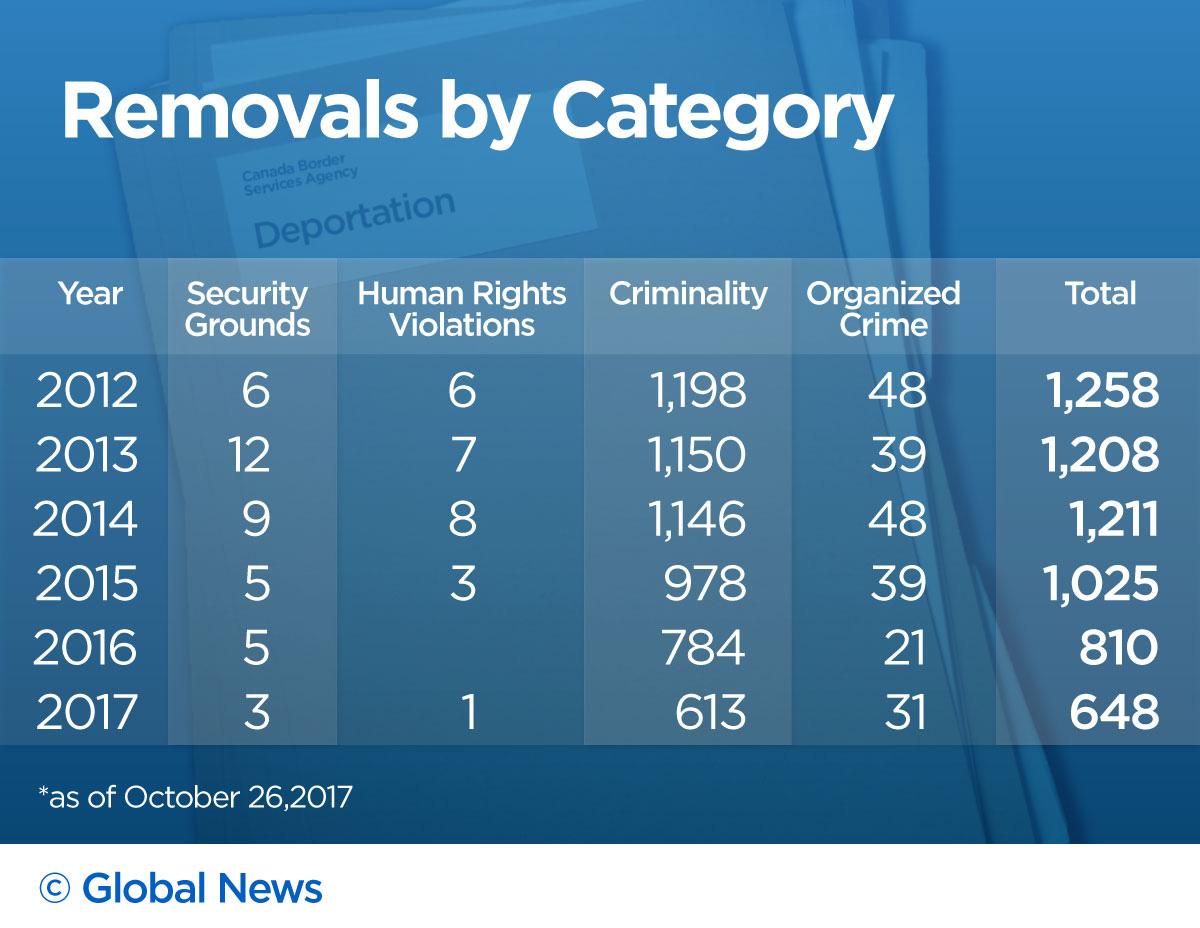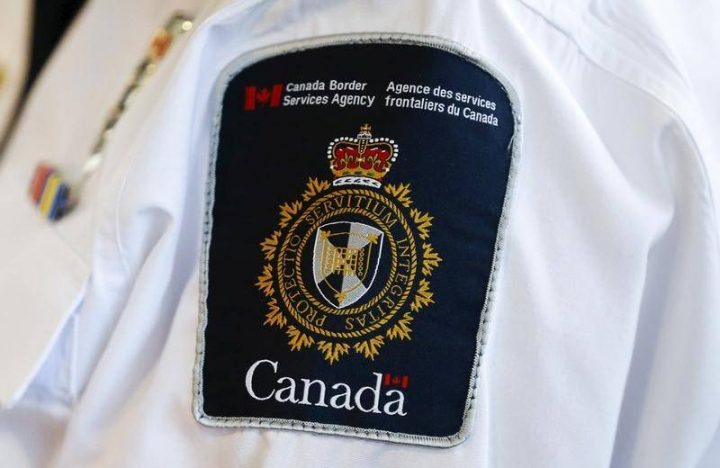A Jordanian citizen, Othman Hamdan worked construction in northern B.C. and, in his spare time, ran social media accounts that supported the so-called Islamic State and celebrated terrorist attacks in Canada.

A hearing to decide whether Hamdan should be deported is planned but figures obtained by Global News show the government has been removing far fewer foreign nationals who pose security and criminal risks than it used to.
The number of foreign citizens deported for security, crime, organized crime and international human rights abuses has dropped by about a third since 2014, according to Canada Border Services Agency figures.
During that same period, the number awaiting deportation on those grounds has more than doubled to 1,164. They include 20 ordered deported on security grounds and 35 for organized crime.
In effect, the number of non-Canadians deemed by the government to be too dangerous to remain in the country has gone up but the number being successfully deported has gone down.
As a result, there are currently almost 1,200 citizens of foreign countries living in Canada despite having been ordered deported for the most serious reasons such as membership in terrorist organizations and gangs.
“The number has increased slightly year over year,” said Barre Campbell, a border agency spokesperson.
The CBSA did not say how many of those awaiting deportation were detained.
Asked why removals had declined so significantly, Campbell initially responded that the CBSA would “not speculate.” In a subsequent statement, the agency attributed the drop to troubles obtaining travel documents.
“While the CBSA continues to prioritize these cases for removal, obtaining travel documents for these persons continues to be the single largest impediment to removal,” Campbell said.
Before sending deportees back to their home countries, the CBSA has to obtain travel papers for them from their governments. The spokesperson did not explain why that had become more difficult over the past three years.
But the head of the union that represents border officers said it was partly a resource issue. Border officers who deal with removals are a “very small group” and they had been pulled off their regular case loads to handle the surge of refugee claimants such as those walking into Canada at places like Lacolle, Que., said Jean-Pierre Fortin, national president of the Customs and Immigration Union.
“So basically all their files have been put aside in order to process these refugee claims,” he said. “They’ve been full time at the border.”
He said the number of CBSA officers was also down despite the growing demands on them.
“What we’re saying, give us the proper amount of resources to deal with that, and right now we’re getting onto a very dangerous slope.”
The CBSA denied the deployment of officers to Lacolle had slowed removals.
The Liberal government has been reassuring Canadians that rigorous screening measures are in place to weed out refugee claimants and immigrants who pose security and crime risks.
But the CBSA figures suggest that while screening has identified migrants who are inadmissible to Canada due to terrorist or criminal backgrounds, returning them to their own countries has become increasingly difficult.
Removals in the four most serious categories of inadmissibility — security, human rights, crime and organized crime — were in the 1,200s from 2012 to 2014. But in 2015 they dropped to 1,025, then went down again to 810 in 2016. There have been 648 such removals so far this year.
The number deported for security reasons was 12 in 2013 but dropped to nine in 2014. Five were deported in 2015. Among them was Aqeeq Ansari, a Pakistani terrorist group member who had stockpiled firearms and ammunition at his Peterborough, Ont. home.
Also deported for security that year was Jahanzeb Malik, another Pakistani who had trained in Libya and was caught by an undercover RCMP officer plotting bomb attacks in Toronto.
Another five were removed for security in 2016 but so far, there have been just three security-related deportations up to the end of October 2017.
The same downward trend applies to removals for war crimes and crimes against humanity. They dropped from eight in 2014 to one this year. Removals for crime are also down. Those for organized crime are up this year but have still fallen since 2014.
The drop in deportations is noteworthy because the number of security and human rights cases referred to the Immigration and Refugee Board for hearings has climbed during that same period.
Last year, 67 security cases were finalized by the IRB, up from 36 in 2013. Human rights-related cases were also up, to 26 last year from 10 in 2013. The total number of IRB cases in the four key categories remained relatively unchanged.
WATCH: Should the Edmonton terror suspect face deportation?

Michelle Rempel, the Conservative immigration critic, said Sunday the government had an obligation to remove those found inadmissible to Canada as quickly as possible.
“It is concerning that there seems to be a trend away from this,” she said.
She said she wanted to know what the government was doing to track those awaiting deportation and to expedite the process of removing them.
“People who aren’t eligible to be in Canada shouldn’t be in Canada,” she said.
Stewart.Bell@GlobalNews.ca







Comments